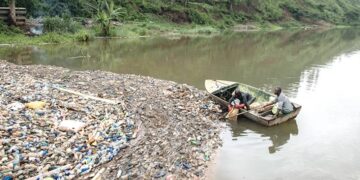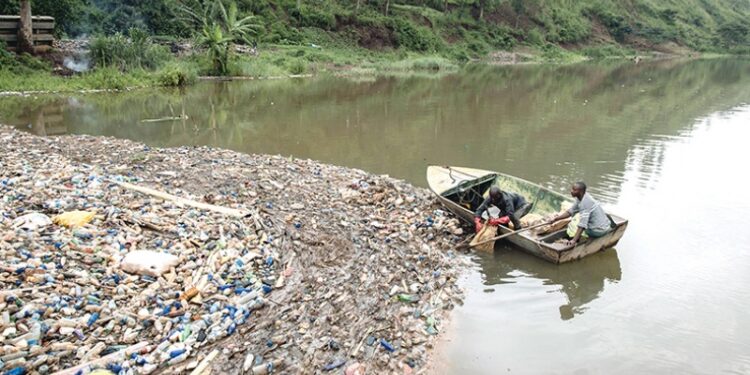In eastern Democratic Republic of Congo huge layers of plastic waste ride the water and has blocked the turbines of the largest hydroelectric plant cutting power supply.
The Ruzizi dam is polluted by thousands of bottles, cans and other objects thrown into the lake, which stretches 90 kilometres along the border between DR Congo and Rwanda.
Production manager at the dam’s power station Lievin Chizungu, told the press that since the lake flows towards the Ruzizi River, all the waste thrown into it comes here little by little.
The mountainous terrain and rainy climate around lakeside Bukavu, capital of South Kivu province, do not help.
According to Jovy Mulemangabo, an engineer for the national electricity company (SNEL) in south Kivu the rainwater carries the waste into the lake and then into the river.
Chizungu says piles of waste can “reach a depth of 14 metres” (almost 46 feet). Divers clean the river bed to keep debris from clogging the turbines. If waste gets trapped, towns in the area are deprived of power.
Other employees clean the surface, using barges.
“I have been doing this job for 13 years,” Byunanine Mubalama told AFP. “Every day there is garbage I have to clean up.”
The impact is huge
But it is not enough. One of the four units in the plant was damaged by debris at the end of January, and it is still down.
“The impact is huge. We have a deficit of 6.3 megawatts out of 30 total MW that we must produce not only for South Kivu, but also for neighbouring North Kivu province and for Burundi,” Chizungu said.
Garbage also caused an alternator to fail at the Ruzizi 2 power plant about 25 km south of Bukavu. With the damage at both plants, they are 20 MW short, Chizungu said.
This has provoked “many power outages in Bukavu and Uvira”.
Nicole Menemene, 29, collects plastic waste on the lake’s shores to make baskets, flowerpots, stools and nightstands.
She runs a private company called Plastycor that transforms trash into “beautiful and useful” objects.




































